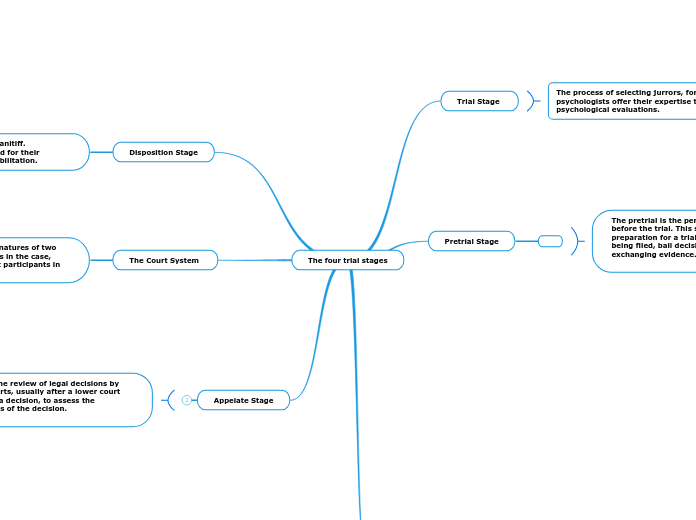The four trial stages
Trial Stage
Pretrial Stage
Court Types
Criminal Court - Legal institution that determines the guilt or innocence of an individual.
Civil Court - Legal institution that determines disputes between individuals.
Disposition Stage
When a virdict faces the planitiff. Psychologists may be asked for their opinion.experstise on rehabilitation.
Presentence Investigation (PSI) - A document obtained by the court from a probation officer typically. Includes information about the offender’s family history, background, level of education, substance abuse, criminal history, and medical needs.
The Court System
A document bearing the signatures of two parties with vested interests in the case, although they are not direct participants in the trial.
Appelate Stage
The pretrial is the period after an arrest but before the trial. This stage is crucial in preparation for a trial. It includes charges being filed, bail decisions being made, and exchanging evidence.
Arrainment - An open ended reading in which the charges are read.
Initial appearance - held within 24 hours of the arrest, unless offender is in jail, it is rescheduled.
Grand jury - body of citizens that examines the evidence and determines if it is enough to result in indictment.
The process of selecting jurrors, forensic psychologists offer their expertise through psychological evaluations.
Voir Dire - the process of lawyers deciding who is the best fit for a jury.
Prepetory Challenge - lawyers may reject jurrors they do not see fit.
Mental Health Court - Court inclusive for people who experience mental disorders.
Involves the review of legal decisions by higher courts, usually after a lower court has made a decision, to assess the correctness of the decision.
